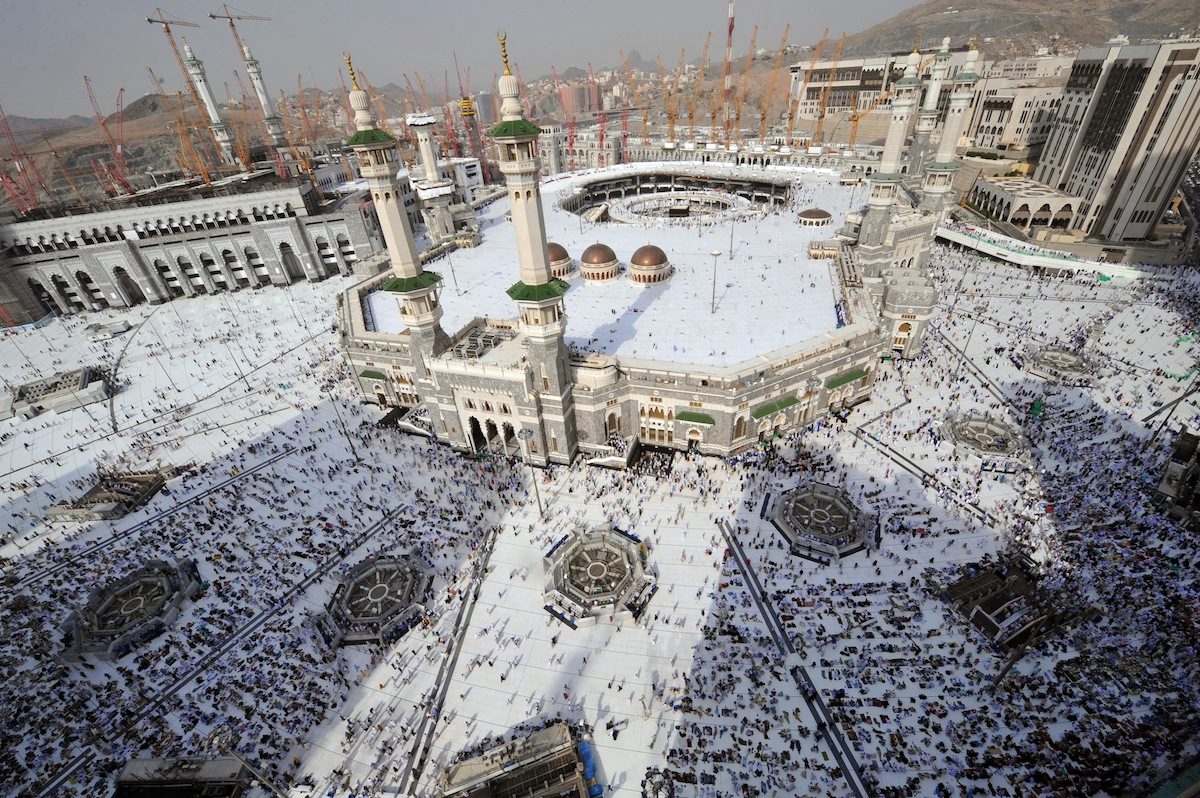
The annual Islamic Hajj pilgrimage to Mecca kicks off this week, with some 2 million people expected to join. The religious occasion is considered to be the largest annual mass gathering in the world and is, unsurprisingly, accompanied by a litany of logistical hurdles, ranging from transportation to accommodations.
But it could be worse: in 1952, the problem was particularly acute. As TIME reported then, far more pilgrims were headed for Saudi Arabia, where Mecca is located, than had been expected, in part because Saudi Arabia had waived an entrance fee for pilgrims that year. As a result, flights from Beirut–a common layover–were overbooked, and thousands of people found themselves stranded in Beirut on their way to Mecca.
One American diplomat in Lebanon, Harold Minor, saw an opportunity to lend a helping hand and, in so doing, also attempt to mend the U.S.’s then-shaky relations with the Arab world. Here’s TIME’s account of the ensuing “miracle in Washington:”
Minor promptly dashed off a “night action” (most urgent) cable to Washington, pointing out that here was a real chance for the U.S. to make friends in the Arab world. Something of a miracle then happened: the State Department got the point. At Rhein-Main airport in Wiesbaden, Germany, at Wheelus Field in Tripoli, at Orly Field in Paris, U.S. airmen were suddenly alerted for special duty. Three days later, the first of 13 huge U.S. C-54s landed at Beirut’s airport. Next morning Operation Hajj was under way…
Five days later the last of 3,763 stranded pilgrims was loaded aboard the last flight. The airlift had traveled a total of 121,800 miles. Some of the U.S. airmen had spent 27 out of 40 hours in the air, but the trips had been more than worth it. The pilgrims’ airlift had done more good than any other act of the U.S.’s otherwise fumbling and unimaginative action and inaction in the Middle East. It was the one success U.S. diplomacy could claim in a week of continued crises.
The operation was reportedly a huge success and drew praise from Arab leaders and TIME readers alike. Wrote one reader, Nashville resident Robert Alvarez:
What a thrill—to read of our big, bumbling State Department actually showing a little imagination. This is the kind of thing they ought to be doing every day in the year—instead of once a decade . . .
Read the 1952 story about Operation Hajj: Airlift for Allah
More Must-Reads from TIME
- Caitlin Clark Is TIME's 2024 Athlete of the Year
- Where Trump 2.0 Will Differ From 1.0
- Is Intermittent Fasting Good or Bad for You?
- The 100 Must-Read Books of 2024
- Column: If Optimism Feels Ridiculous Now, Try Hope
- The Future of Climate Action Is Trade Policy
- FX’s Say Nothing Is the Must-Watch Political Thriller of 2024
- Merle Bombardieri Is Helping People Make the Baby Decision
Write to Noah Rayman at noah.rayman@time.com